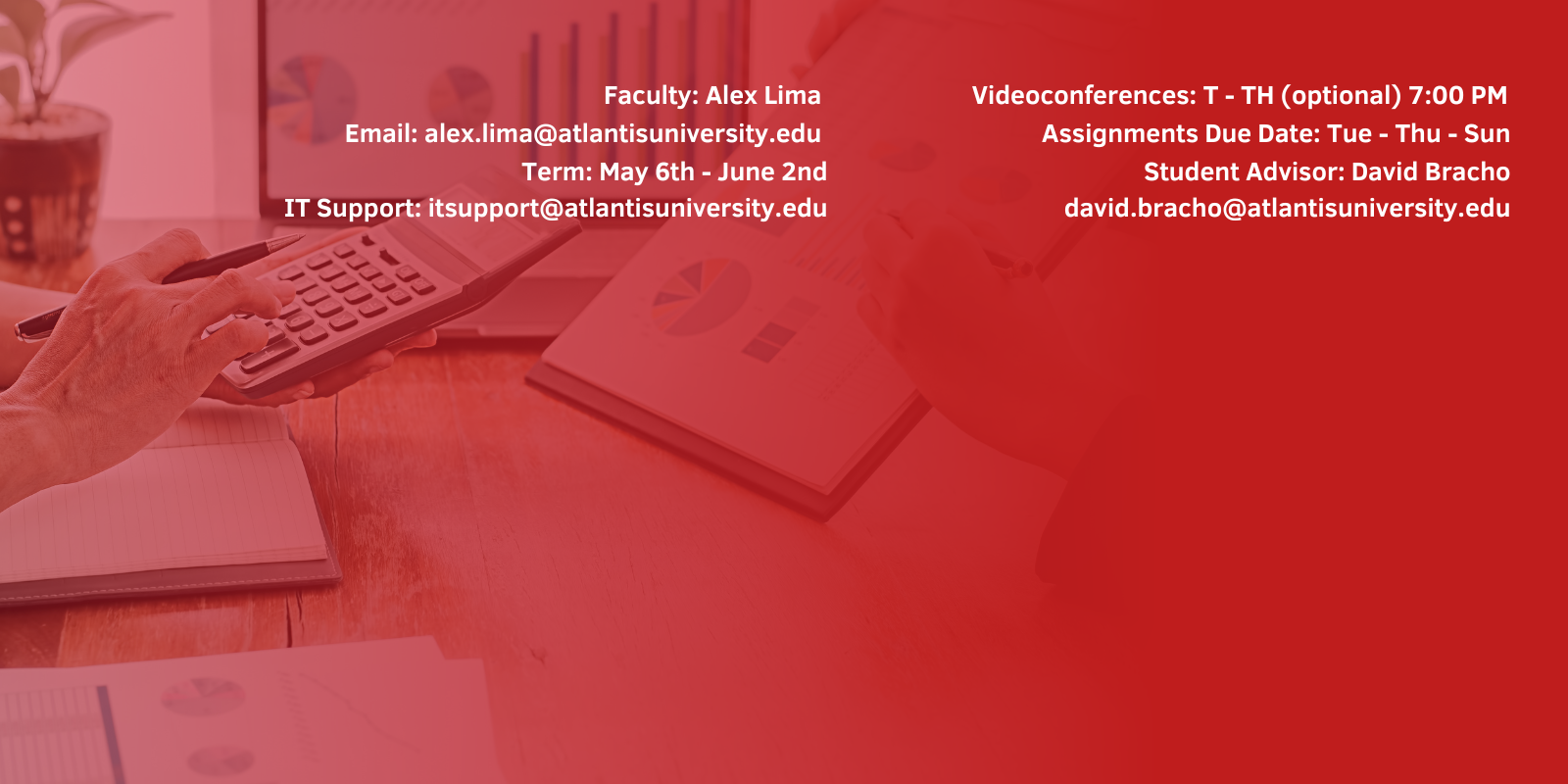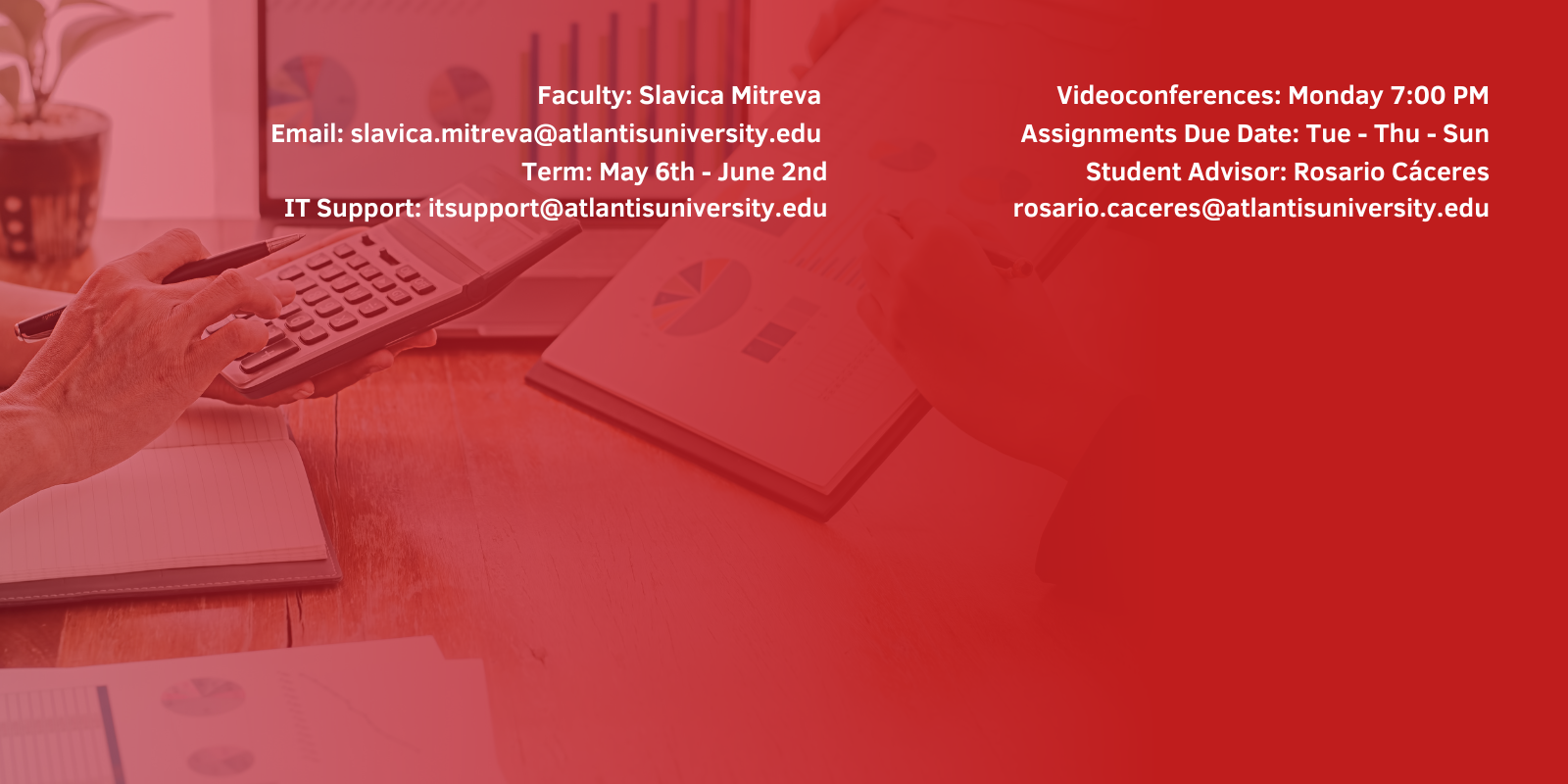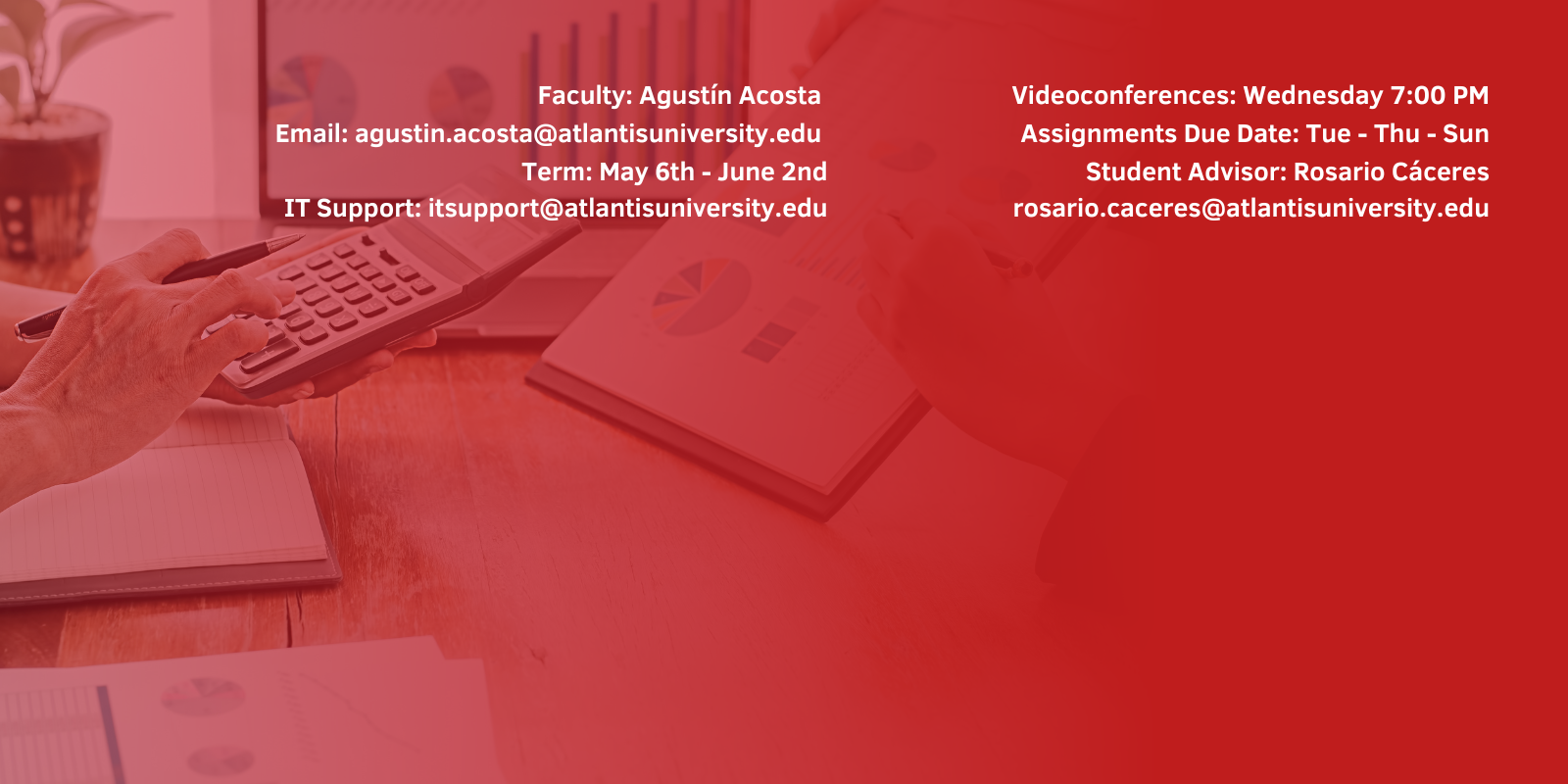
- Teacher: Alex Lima

Students will learn core SC-related concepts including time-based inventory management, warehousing, transportation and distribution systems design, facility location decision process, and information handling in SC operations as competitive advantages in service-based emerging economies. SCs are concerned with the efficient integration of suppliers, factories, warehouses and stores so that products are distributed to customers in the right quantity and at the right time. One of the primary objectives is to minimize the total supply chain cost subject to various service requirements. SCs are responsible for, now on a global scale, the delivery of valueadded goods/services in any organization – public or private, and profit or non-profit.
The course explores important supply chain metrics, primary tradeoffs in making supply chain decisions, and basic tools for effective and efficient supply chain management, production planning and inventory control, order fulfillment and supply chain coordination. We will also investigate topics such as global supply chain design, logistics, and outsourcing, several other recent supply chain innovations"
- Teacher: Slavica Mitreva

This course focuses on the application of behavioral science theory and concepts to individual, interpersonal and group processes in a diverse work force. Topics include personality traits, emotions, values, work attitudes, work motivation, organizational politics, group effectiveness and conflict.
Understanding human behavior at work is an essential aspect of successful management. Most management programs require an Organizational Behavior class. Organizational Behavior focuses on improving productivity, quality, and assisting managers to design more positive organizations. The course is an introduction to the interaction between people, structure, and environment. The course provides a micro-level analysis of behavior of individuals and groups within their organizations, and the influence of the environment on behavior patterns.
- Teacher: Agustin Acosta
A través de estudios de casos innovadores, utilizados como ejemplos, dejando en evidencia el cómo los individuos y las organizaciones influyen entre sí en el entorno de las organizaciones. Los participantes serán capaces de interactuar entre sí y con el instructor en actividades simuladas demostrativos de ejemplos del mundo real. Trabajando de forma independiente y en proyectos de grupo, permitiendo obtener una comprensión del diseño de la organización, así como los elementos que sostienen poderosa influencia de los empleados en el logro de objetivos y clima organizacional deseado.